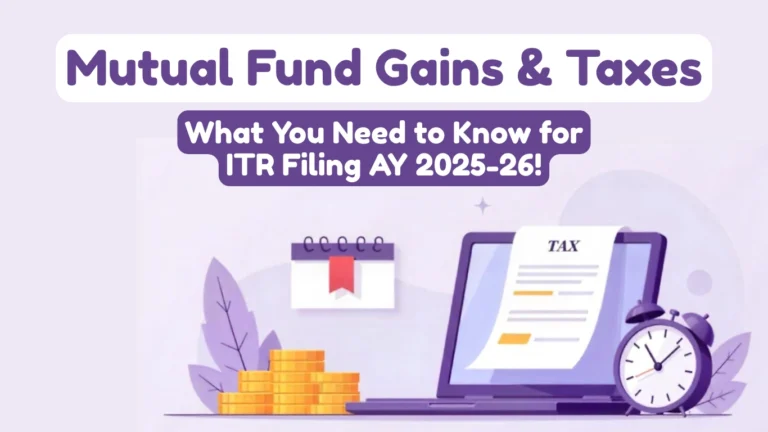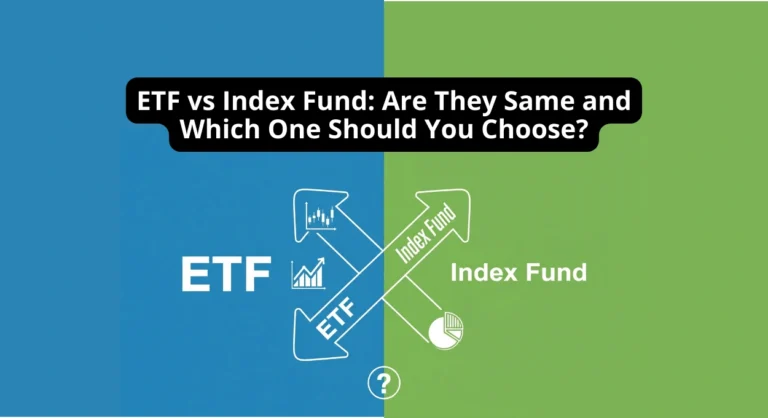From Dividends to Gains: Understanding Mutual Fund Taxation
From Dividends to Gains: Understanding Mutual Fund Taxation
Investing in mutual funds is a popular strategy for growing your wealth over time. However, like all investments, it’s essential to understand the tax implications that come with it. Your tax liabilities can vary depending on a few key factors, such as the duration for which you hold your investments, the type of fund you’re invested in, and the nature of the gains you make. Let’s break down the details to help you navigate the complexities and optimize your investment returns.
The Role of Holding Period
One of the most significant factors influencing your tax bill is the holding period of your mutual fund investments. Generally speaking, the longer you hold an investment, the lower your tax liability. This is because of the distinction between long-term and short-term capital gains tax rates, which we’ll explore in more detail below.

Types of Funds and Their Tax Treatments
The type of mutual fund you invest in plays a pivotal role in determining how your gains are taxed. Broadly, mutual funds fall into two categories: equity funds and debt funds, each with different tax treatments.
- Equity Funds: These funds primarily invest in stocks. They are generally taxed more favourably, especially for long-term holdings.
- Debt Funds: These invest in bonds and other fixed-income securities. They have a different tax structure, particularly for long-term investments, which has undergone recent changes.
- Hybrid Funds: These funds combine both equity and debt investments. Their tax treatment depends on the proportion of equity they hold. Funds with 65% or more equity exposure are taxed like equity funds, while those with less than 65% equity exposure are taxed like debt funds.
Understanding Capital Gains and Dividends
When investing in mutual funds, there are two primary types of gains that you will encounter: dividends and capital gains.
- Dividends: These are payments made by the fund to its investors from the income it generates. Dividend income from mutual funds is now considered part of your regular income and taxed accordingly. If your dividend income exceeds ₹5,000 in a financial year, the fund company will deduct 10% Tax Deducted at Source (TDS), which you can claim when filing your taxes.
- Capital Gains: These are the profits you make when you sell your mutual fund shares for more than what you paid for them. Capital gains are classified into two types:
- Long-Term Capital Gains (LTCG): For equity funds, long-term means holding the investment for more than a year. For debt funds, it typically means holding for more than three years.
- Short-Term Capital Gains (STCG): These are gains from funds held for less than the long-term threshold.
Tax Treatment of Capital Gains
The tax rates on your capital gains depend on the type of fund and the holding period:
- Equity Funds:
- Long-term Capital Gains: If you hold your equity fund investments for more than one year, you qualify for long-term capital gains tax benefits. Gains up to ₹1 lakh are tax-free. Beyond ₹1 lakh, you will be taxed at 10% without the benefit of indexation.
- Short-term Capital Gains: If you sell within a year, the gains are taxed at a flat rate of 15%.
- Debt Funds (as of April 2023):
- The tax treatment for debt funds has changed. Now, your gains from debt funds are taxed based on your income tax bracket, similar to regular income. This removes the previous benefits of lower long-term capital gains tax rates and the ability to claim indexation benefits, making debt funds less tax-efficient than before.
- Hybrid Funds:
- Equity-Oriented Hybrid Funds: If the fund has 65% or more equity exposure, it’s taxed like an equity fund.
- Debt-Oriented Hybrid Funds: If the equity exposure is below 65%, it’s taxed like a debt fund.
Also Read :- https://ipofront.in/are-mutual-funds-safe-investments/
How to Report Gains and Minimize Tax Burden
When you sell your mutual fund investments, you must report any capital gains on your income tax return (ITR). Proper documentation is crucial—keep detailed records of your purchase and sale dates, the amounts invested, and the type of fund to ensure accurate reporting. Depending on your financial situation and investment details, select the appropriate income tax return form.
To minimize your tax liability, consider holding your investments for the long term, especially if you’re invested in equity funds. Additionally, you can explore tax-saving mutual funds like Equity Linked Savings Schemes (ELSS), which offer deductions under Section 80C of the Income Tax Act, helping reduce your taxable income.
Also Read :- https://ipofront.in/how-to-pick-the-right-mutual-fund/
Consult a Financial Advisor for Expert Guidance
The tax implications of mutual fund investments can be complex, especially if you have a diverse portfolio. It’s advisable to consult with a qualified tax advisor or financial planner to ensure you’re optimizing your tax strategy and staying compliant with the latest tax laws. They can help you understand how changes in the tax landscape—like the shift in debt fund taxation—affect your specific investment situation.
Stay Updated on Tax Laws
Tax laws are subject to change, so it’s essential to stay informed about any updates or revisions that may affect your mutual fund investments. Always consult with a tax professional before making any significant changes to your investment strategy.
Investing in mutual funds can be an effective way to build wealth, but it’s important to be aware of the tax implications involved. By understanding the different tax treatments based on fund types, holding periods, and the nature of your gains, you can make informed decisions that minimize your tax liabilities. Whether you’re in the early stages of investing or looking to optimize an existing portfolio, staying educated on the tax landscape—and seeking expert guidance when needed—will help ensure that your mutual fund investments are as tax-efficient as possible.
Useful Links: –https://www.amfiindia.com/investor-corner/knowledge-center/tax-corner.html







